Taiwan Auto-parts Makers Upbeat About Second Half
2006/06/29 | By CENSSales were relatively flat for Taiwan's makers of aftermarket (AM) collision parts-parts that are replaced after collision damage-in the first half of 2006, but prospects are brighter for the second half of the year and the first few months of 2007. In response, the manufacturers are planning capacity expansions or are boosting the certification of their parts in promising markets.
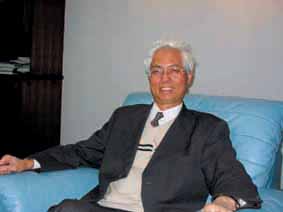
"Our sales in the North American market were flat in the first half," Jong comments, "but we're optimistic about a substantial increase in demand from the auto-insurance market in the second half or early in 2007."
Even as the demand for AM collision parts looks sure to strengthen, Jong points out, "We're also witnessing an increasing prevalence of approval from the Certified Automotive Parts Association (CAPA) in the North American replacement parts market."
When the State Farm case erupted in 1999, Jong recalls, sales of Taiwan-made collision parts to the U.S. aftermarket plummeted around 30%. The impact of the case began softening in 2002, as a group of auto-insurance firms (but not State Farm) resumed the use of AM parts. Since that time the AM parts market there has recovered to its pre-1999 level, or even higher-but still without the participation of State Farm, which alone accounts for 20% to 25% of the American auto-insurance repair market.
Another reason for the unexciting sales in the first half of the year is the slowness of Europe's new Automotive Block Exemption Regulation (BER) 1400/2002/EC to take hold, a phenomenon which Jong attributes to the limited number of product items that have been certified under the standards mapped out by Thatcham of the United Kingdom. Insurance companies are expected to use more AM parts as more of them become certified.
Sales Jump Expected
In addition, Jong explains, "Many European automakers, especially French ones, have been striving to minimize the effect of BER on their sales of service parts by cutting the prices of their original equipment service (OES) parts. But such attempts to block the sale of AM collision parts in Europe will have only a temporary effect; major auto-insurance firms there have become more aggressive in using AM auto parts, and consumers in general have learned more about how this can save them money without affecting repair quality. So we expect a big jump in AM collision-part sales in Europe in the near future."
The ratio of AM parts used in Europe is only 2-3% now, compared with around 15% in the U.S. APi hopes to help boost this percentage, and seems in a good position to do so; by the end of May this year, 545 of its parts (along with those of its subsidiaries) had won CAPA certification and 24 had been approved by Thatcham.
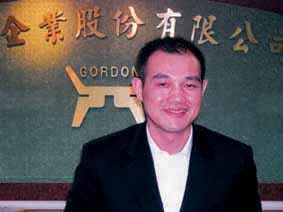
To meet the strong surge in demand that is expected to come from the North American market, Gordon has purchased 8,600 ping of land (one ping equals 36 square feet or 3.3 square meters) beside its plant at Taoyuan in northern Taiwan for the construction of a new plant to be used mainly for the development of molds and dies as well as for storage.
The new BER led to an appreciable increase in Gordon's sales to Europe this year, Pan says, boosting that region's share of the company's total sales from 0.5% to 3%. Pan expects European sales to continue growing as more and more of his products achieve Thatcham approval.
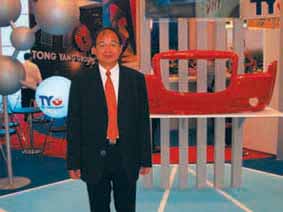
Yang reports that in Europe, by contrast, Tong Yang's sales in the first half were strong because of the positive effects of the new BER as well as the boost in willingness to buy that derived from the strong euro.
Good Weather Equals Poor Sales
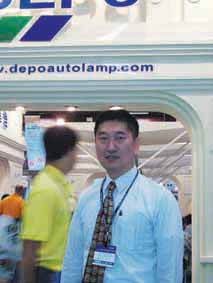
The results of this effort, Hu stresses, will be felt not only in the North American market, because the resulting upgrade in corporate and product image will spread to major markets all over the world.
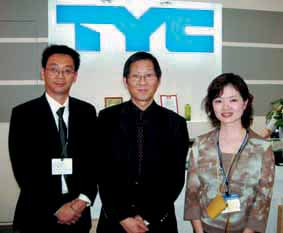
"CAPA certification will bring a better market in North America for quality-oriented auto-lamp suppliers like TYC," Ting notes, "because poor-quality products have destroyed the market order there in the past few years."
More than 20 TYA products had won CAPA certification by mid-May this year, reports Orian Chang, TYC's manager of North American sales. "CAPA certification is a challenge for all auto-lamp makers," she says, "because it requires even higher levels of quality and safety than is required for OEM items. CAPA approval will create lucrative business opportunities for the companies that can qualify."
TYC's global sales grew by 10% to 20% in the first half of the year, depending on market area. In addition to an increasing number of certified products, Ting says, this performance was due to the company's comprehensive product range as well as growing revenue from OEM sales. The firm currently supplies its products to major automakers in the U.K., Italy, Japan, Australia, South Africa, and the Philippines.
The effects of the new BER in Europe are not yet very obvious, Ting comments, but improvements will come with structural changes such as the German market's adoption of EC standards in the certification of AM auto lamps, and with orders starting to come in from Eastern European countries that used to be closed. (June 2006)




